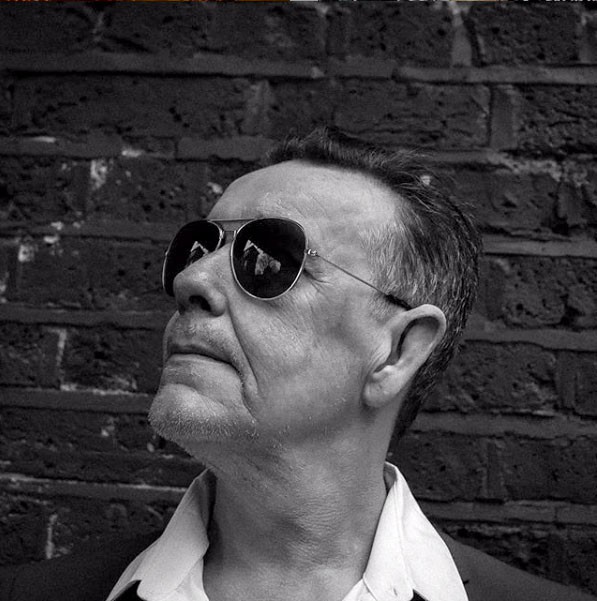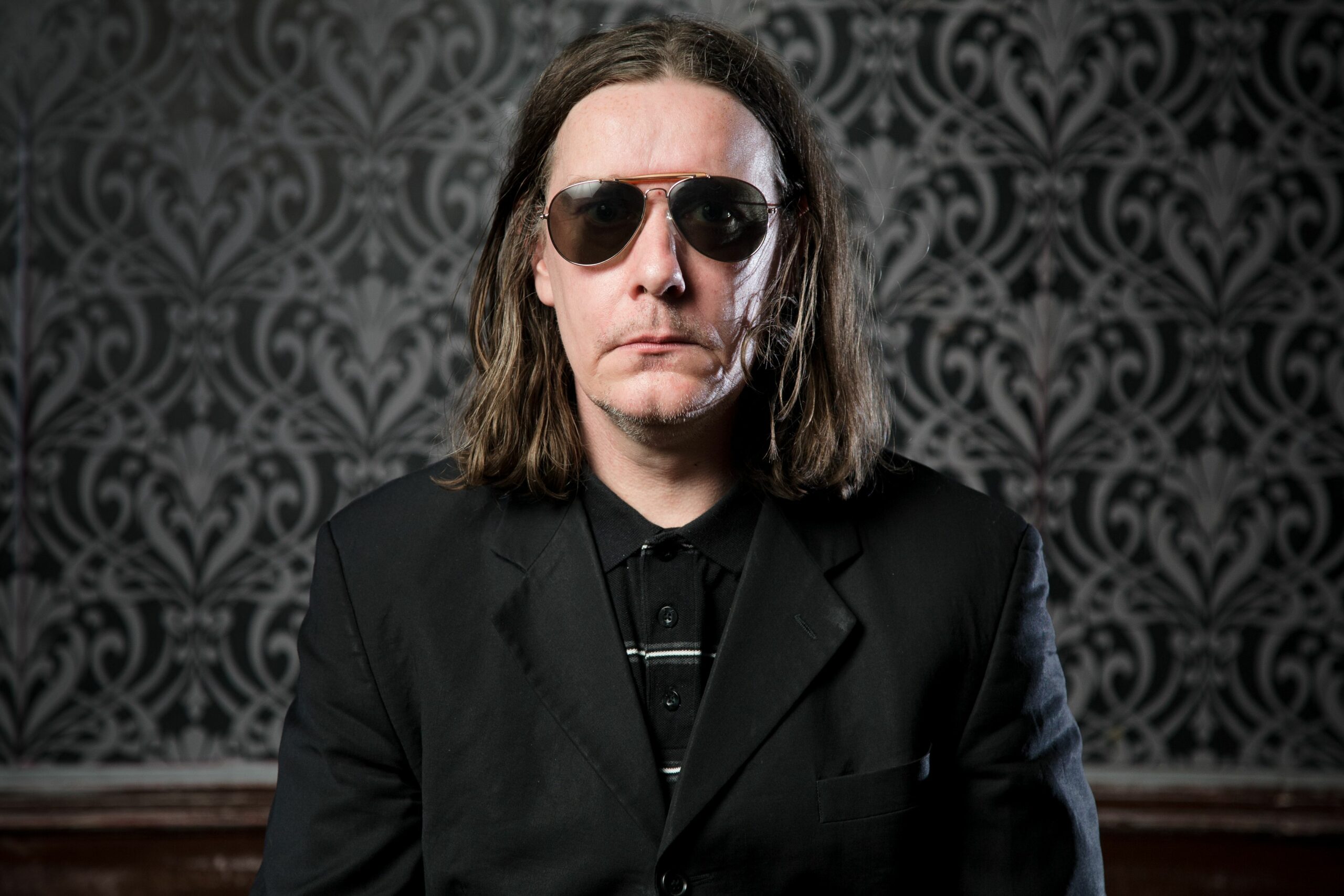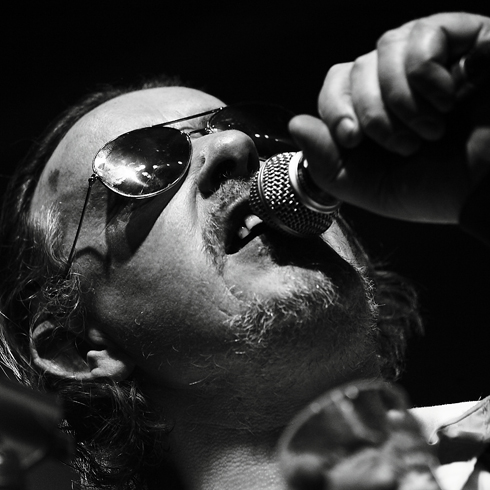
RIP


Jake Black Obituary
Alabama 3 are an unconventional band and their singer and songwriter, Jake Black, who has died aged 59, bore no resemblance to a conventional pop star. Black (who was also known as the Very Reverend D Wayne Love) co-founded the group with Rob Spragg (alias Larry Love) in London in the mid-1990s, basing it on their shared fondness for country music and techno.
They were not from Alabama – Black was from Glasgow and Spragg from South Wales – and while they began as a duo, Alabama 3 is a loose construct likely to number about nine once onstage. “Alabama 3 is very much a collective and Jake was a major philosophical grandee of the band,” said Spragg. “He was always impressed by the collectivisation of what you could do with music. Jake was self-educated but also very streetwise, which made him such an interesting character.”
As another bandmate, the harmonica player Nick Reynolds, put it: “You could drop Jake anywhere, he was a perfect social chameleon. He was highly intelligent and really erudite. Other singers would jump up and down like Mick Jagger, trying to get the audience’s attention. Jake just stood there with one hand in his pocket, and it had the same effect as the guy doing the look-at-me routine.”
Alabama 3 enjoyed their highest visibility when the track Woke Up This Morning, from their debut album, Exile on Coldharbour Lane (1997), was chosen as the theme tune to HBO’s mobster TV series The Sopranos. Co-written by Black, the song’s irresistible rolling motion and samples from the bluesmen Howlin’ Wolf and Muddy Waters imparted the sense of lawless edginess required. It earned the group a £31,500 fee and some ongoing royalties, but more importantly gave them a go-anywhere calling card, as the series ran until 2007.
The track meant that the sound of Alabama 3 seeped steadily into the popular consciousness, though they regretted that they did not convert their advantage into bestselling chart hits. The start to their career suggested that fame and fortune were heading their way, since the Coldharbour Lane album was recorded using a million-dollar advance from Geffen Records, and perfectly exemplified Black and Spragg’s eccentric blueprint for the group.
One of its songs, The Old Purple Tin, was a beautiful old-time gospel hymn, but dedicated to Tennent’s Super lager rather than the good Lord. U Don’t Dans 2 Tekno spelled (or misspelled) out their masterplan, mixing country music harmonies, fiddle and harmonium with a clumping drum machine accompaniment.
It was three years before they released the follow up album, La Peste, but it boldly expanded the group’s acerbic world view.
Plundering and transforming ideas from the whole musical universe was becoming a trademark. They re-used Hank Williams’s title Mansion on the Hill for their own new song, punned on Dylan in Sad Eyed Lady of the Lowlife, and created a neurotic electro-powered version of the Eagles’ Hotel California, which won the approbation of Don Henley, who praised its evocation of “cocaine paranoia”.
On their next album, Power in the Blood (2002), they covered Bruce Springsteen’s Badlands, and Outlaw (2005) contained Hello… I’m Johnny Cash, a brilliantly observed tribute to the Man in Black.
The group’s eclectic sound and gift for dark and scandalous narratives found much favour among writers, from Irvine Welsh and Will Self to Stephen King, Leonard Cohen and Hubert Selby Jr. The charismatic and well-read Black became friendly with the actor Peter O’Toole and the film director Ken Russell, the latter introduced to him by Reynolds. He also became great friends with Reynolds’s father Bruce, credited as the brains behind the 1963 Great Train Robbery. “My dad was a big fan of Jean Genet and I think that’s how they hit it off,” said Reynolds. Bruce Reynolds duly recorded a monologue on Have You Seen Bruce Richard Reynolds? from the Outlaw album.
Black was born in Basildon, Essex, where his family had moved temporarily because there was no work in their native Glasgow. His father, Bill Black, worked in the Glasgow shipyards, and was a passionate trade unionist and committed communist. Jake’s mother, Madge (nee Connolly), had been a performer in the Moxon Girls, a theatre chorus and dance troupe.
Bill wanted his son to follow his own political leanings, forcing him to listen to revolutionary folk songs by Ewan MacColl rather than Led Zeppelin, and sending him to Communist party summer camps in the eastern bloc.
Liberation came in the form of punk rock, after which, as he told Welsh in a 2008 Guardian interview, he and his friends in Glasgow “were able to come out of the [housing] scheme, dress up and hit the city centre, talk about Rimbaud and Baudelaire, mix with Jim Kerr and Charlie Burchill [of Simple Minds] and get shagged.”
He also got to know Bobby Gillespie, Edwyn Collins and the future Creation Records founder Alan McGee, and played in two bands, the Dialectics and the Jangelettes. Later he worked regularly as a techno DJ.
He first met Spragg, who had his own confined upbringing as the son of a Mormon preacher, at an acid house party in south London. “I could hear this techno music in the other room, and I just started singing Wait for the Light to Shine by Hank Williams over a techno beat,” Spragg recalled. “Jake came over and said ‘hey, you know fuckin’ Hank Williams!’ We were both surrounded by country and western from an early age, all the showbands played it on a Saturday night.”
They travelled to Italy to work on their craft, singing blues songs over mixes by the DJ Piers Marsh. Back in Britain they worked on assembling what would become Alabama 3, adding additional musicians and creating a barnstorming live show.
Black died a few days after Alabama 3 had played the Highest Point festival in Lancashire. He had had pneumonia earlier in the year, and had been suffering from Addison’s disease. The group has pledged to carry on: “He was a man who loved rock’n’roll and wouldn’t want us to be sentimental,” said Spragg. “He’d say ‘get on that fuckin’ bus and do it’.”
He is survived by his siblings, Steven, Robert, Janice and Lynn.
Jake Black, musician, born 27 April 1960; died 21 May 2019
